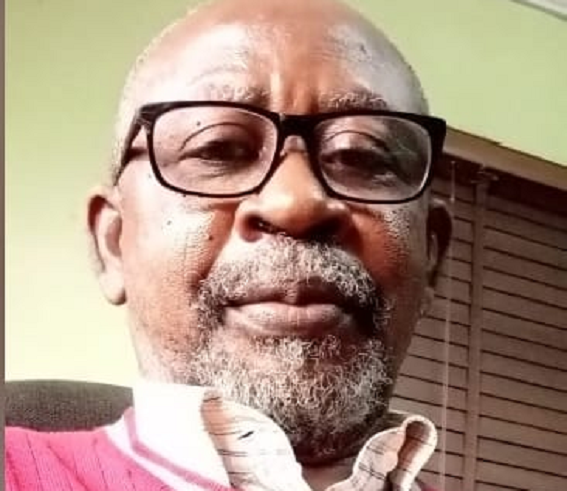By
Nze David N. Ugwu
The Paradox of Growth Without Development
Every year, Nigeria’s economic managers proudly announce that the economy has “grown” — by 2.5%, 3%, sometimes even 5%. International institutions like the IMF and World Bank release projections showing Nigeria’s Gross Domestic Product (GDP) inching upward, placing it as Africa’s largest economy on paper. Yet, when you step into the streets of Lagos, Kano, Port Harcourt, or Enugu, you encounter a very different reality: rising food prices, joblessness, power outages, crumbling infrastructure, and families sinking deeper into poverty.
The paradox is glaring: Nigeria’s growth figures glitter on paper, but its people are gasping in poverty. The economy grows, but Nigerians do not feel it. The statistics rise, but living standards fall. This disconnect between economic indicators and social reality exposes a deep structural failure in Nigeria’s developmental model — a failure that has persisted for decades and is now pushing the country to a breaking point.
The Mirage of GDP Growth
GDP — the total value of goods and services produced within a country — has long been treated as the gold standard of progress. Successive Nigerian governments have relied on it as proof of achievement. But GDP is a deceptive measure. It tells us how much is produced, not how that production is distributed or who benefits from it.
In Nigeria, GDP growth often comes from oil revenues, financial services, and telecommunications — sectors that are capital-intensive, not labor-intensive. They create wealth for a few but not jobs for the many. The poor are excluded from the engines of growth.
Between 2010 and 2023, Nigeria’s GDP grew cumulatively by over 30%, yet the number of Nigerians living in extreme poverty — those surviving on less than $2.15 a day — rose to over 100 million according to the World Poverty Clock. This means that while the economy was expanding, poverty was deepening. The so-called “growth” was a mirage — numbers rising on paper but lives falling apart in reality.
Oil Wealth, Poverty Nation
The Nigerian story is one of extraordinary potential crippled by extraordinary mismanagement. Since oil was discovered in commercial quantity in 1956, Nigeria has earned over $1 trillion from crude oil exports. But where is the money?
A tiny elite captured the wealth, channeling it into luxury lifestyles, offshore accounts, and white-elephant projects. The rest of the country was left with decaying schools, empty hospitals, impassable roads, and deepening poverty. Oil became not a blessing but a curse — breeding corruption, rent-seeking, and fiscal irresponsibility.
The dependence on oil created a lazy political economy. It insulated leaders from accountability because the government could fund itself without taxing its citizens. As a result, governance became detached from performance, and politics turned into a competition for access to oil rents rather than a commitment to productive growth.
When oil prices rise, Nigeria boasts of growth. When prices fall, the economy collapses. No diversification, no industrial base, no resilience. In this volatility, the poor suffer most.
Inflation and the Everyday Struggle
The most visible sign of Nigeria’s economic failure is inflation. Food inflation has remained above 30%, eroding incomes and destroying purchasing power. A bag of rice that cost ₦25,000 two years ago now costs over ₦70,000. Transportation, housing, and health costs have soared. Salaries, meanwhile, remain stagnant.
Inflation is not just an economic statistic; it is a thief of dignity. It forces families to skip meals, parents to withdraw children from school, and patients to forgo medical treatment. It deepens inequality and fuels social unrest.
When government officials say “the economy grew by 3%,” ordinary Nigerians ask, “Where is the growth?” For them, the only growth they see is in prices — not in jobs, not in wages, not in opportunities.
The Jobless Growth Syndrome
Nigeria’s population is growing faster than its economy. Every year, about 5 million young Nigerians enter the labor market, but only a fraction find formal employment. Universities and polytechnics churn out graduates who roam the streets searching for jobs that do not exist.
This is “jobless growth” — an economy that expands without creating work. It happens because Nigeria’s growth is driven by sectors that do not absorb labor: oil, banking, and telecommunications. The manufacturing sector, which should provide mass employment, contributes less than 10% of GDP and is crippled by power shortages, poor infrastructure, and hostile business environments.
Even agriculture, which employs about 35% of Nigerians, remains largely subsistence-based. Farmers toil with crude implements, vulnerable to floods, droughts, and insecurity.
When millions of young people are jobless in a country where the cost of living keeps rising, hopelessness becomes a national epidemic. Some turn to crime, others to drugs, and many to migration — the “japa” syndrome that has seen Nigeria’s best brains flee in search of dignity abroad.
Policy Without Impact
Nigeria’s economic policies often look impressive on paper. Government launches “National Development Plans,” “Economic Recovery and Growth Plans,” “Renewed Hope Agendas.” Consultants write glossy documents full of vision statements and targets.
Yet, implementation is the missing link. Plans are made, but not followed. Budgets are passed, but not executed. Projects are announced, but not completed. Every administration starts afresh, discarding the policies of its predecessor. The result is inconsistency, waste, and stagnation.
Moreover, most policies are elite-centered. They favor those who already have — big corporations, political insiders, contractors. The informal sector, where most Nigerians work, is largely ignored. Women and youth are treated as afterthoughts.
Economic planning in Nigeria has become an exercise in self-deception — impressive in language, dismal in outcome.
Corruption: The Engine of Poverty
Corruption is the single most important reason why Nigeria’s growth does not translate to development. From inflated contracts to ghost workers, from budget padding to diversion of funds, the leakage is massive. The country loses an estimated $18 billion annually to corruption.
Every stolen naira means fewer classrooms, fewer hospital beds, fewer jobs. Corruption diverts resources from productive use to private pockets, distorts incentives, and destroys trust in public institutions. It creates a parallel economy where merit counts less than connections.
When a nation’s elites steal with impunity while the poor suffer without hope, the social fabric begins to unravel. Corruption is not just a moral issue; it is an economic killer and a poverty multiplier.
Structural Inequality and Regional Disparities
Nigeria’s poverty is not evenly distributed. The North bears the heaviest burden. According to the National Bureau of Statistics, over 65% of people in the North-West and North-East live below the poverty line, compared to about 30% in the South-West.
These disparities are rooted in unequal access to education, healthcare, and infrastructure. While Lagos thrives as a commercial hub, many northern communities lack roads, electricity, and basic social amenities. This uneven development fuels resentment and insecurity.
Economic exclusion breeds social conflict. The Boko Haram insurgency, banditry, and communal clashes are not just security issues; they are also symptoms of economic despair. When people are denied opportunity, they turn to violence or extremism as alternative economies.
Leadership Deficit: The Missing Link
Nigeria’s greatest resource is not oil, gas, or land — it is its people. But leadership has failed to harness that potential. From independence to date, the country has been led by elites more interested in power than in progress.
From the oil boom years of the 1970s to the democratic era of 1999 and beyond, leadership has been reactive, not visionary. Leaders have governed by propaganda, not performance. Economic management is politicized; appointments are made based on loyalty, not competence.
The Tinubu administration came in promising “renewed hope,” but hope cannot feed empty stomachs. Removing fuel subsidy without a robust safety net has worsened poverty. Exchange rate liberalization has made life unbearable for import-dependent businesses. Nigerians are told to tighten their belts while politicians buy new SUVs.
Growth cannot be decreed from Aso Rock; it must be built from the ground up — through honest governance, sound institutions, and people-centered policies.
The Way Forward: From Growth to Development
Nigeria must redefine what it means by “growth.” Real growth must be inclusive, sustainable, and people-centered. It must improve lives, not just numbers. To bridge the gap between GDP and wellbeing, the following priorities are essential:
- Diversify the Economy: Reduce dependence on oil. Invest in manufacturing, agriculture, and technology to create jobs.
- Invest in Human Capital: Education and healthcare are the real drivers of productivity. Nigeria spends less than 2% of GDP on health — this must change.
- Strengthen Institutions: End impunity, enforce accountability, and empower anti-corruption agencies.
- Support Small Businesses: MSMEs are the backbone of the economy; they need access to credit, power, and stable policies.
- Regional Equity: Prioritize development in neglected regions to reduce inequality and insecurity.
- Social Protection: Expand safety nets to cushion the poor against economic shocks.
- Leadership Transformation: Development is impossible without ethical, visionary, and competent leadership.
Conclusion: The Measure of True Progress
Economic growth that does not lift people out of poverty is hollow. A nation cannot boast of rising GDP while its citizens cannot afford food, healthcare, or education. True progress is not measured by figures from the National Bureau of Statistics but by the wellbeing of the ordinary Nigerian.
Nigeria must abandon the illusion of paper growth and confront the reality of human poverty. Until growth translates into better lives — until a farmer in Zamfara, a teacher in Ondo, and a trader in Onitsha can feel the benefits — the promise of prosperity will remain a cruel mirage.
A nation’s greatness is not in its oil wells or GDP figures, but in the dignity, welfare, and hope of its people. That, and that alone, is the growth that truly counts.
Nze David N. Ugwu is the Managing Consultant of Knowledge Research Consult. He could be reached at [email protected] or +2348037269333.




